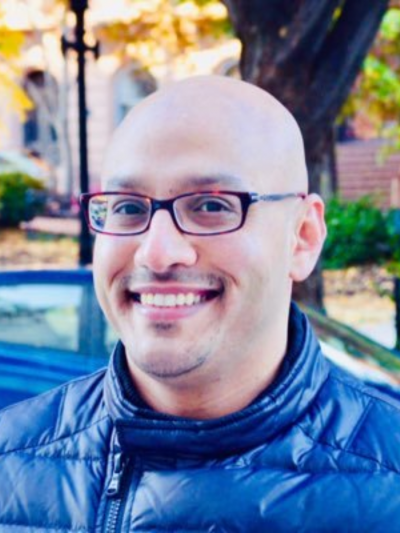Moaz Abdelwadoud
Postdoctoral Fellow

Dr. Abdelwadoud is currently a postdoctoral fellow at the Department of Pharmaceutical health Services Research, University of Maryland Baltimore, The United States. His research interests revolve around health systems and services research with particular focus on equitable access to quality health services, and engaging disadvantaged population in health services delivery and research. Directly after earning his medical degree from Ain-Shams University, Cairo, Egypt; Dr. Abdelwadoud began his public health career in 2007 at Theodor Bilharz Research Institute (TBRI). He worked on prevention and control of liver and kidney diseases with special focus on viral hepatitis. Besides, he participated in the capacity development multi-partner European Union funded THEBERA project. As a member of THEBERA research team, he contributed to the development of a data base for the Egyptian national state of the art in liver disease research. During his appointment at TBRI, he earned his first MPH in Preventive Community Medicine with a capstone entitled “Development of emergency room patient record in TBRI hospital”. In parallel, he worked as a health program specialist at the Center for Development Services assisting in monitoring and evaluation of internationally funded reproductive health, sexuality, and HIV/AIDS projects. The Egyptian Ministry of Health delegated him in 2011 to coordinate a medical convoy and conduct a health needs assessment for asylum seekers stranded at the Egyptian-Libyan border in cooperation with UNHCR then appointed him as the chief of the Egyptian surgical convoy to Burundi in June 2012. Following these missions, he was selected to participate in the Interacademy Partnership for Health Young Physician Leaders Program held in conjunction with the World Health Summit, Berlin, Germany, 2012 and the World Health Organization Assembly, Geneva, Switzerland in 2016. Dr. Abdelwadoud was awarded in 2012 the Netherland Fellowship Program to participate in the 49th MPH/International Course in Health Development organized by the Royal Tropical Institute and The Free University of Amsterdam, The Netherlands. His MPH thesis sought to identify and address key factors that influenced access to hepatitis C interferon-based therapy in Egypt via investigated different health systems policies, strategies, and best practices to inform Egypt’s treatment and prevention strategy. In 2014, Dr. Abdelwadoud moved to the United States to join University of Kentucky Doctor of Public Health (DrPH) Program and worked on the research project “Access to Hepatitis C Treatment in Kentucky”. He developed his doctoral capstone project through this research investigating different barriers to hepatitis C treatment initiation after referral to University of Kentucky outpatient clinic. In the quantitative part of this project, he compared the differential impact of patients’ sociodemographic, behavioral, and clinical characteristics on treatment initiation. The qualitative part of this research was a practical fieldwork exploring via in-depth interviews with health care providers the administrative and clinical barriers to hepatitis C treatment. In May 2017, he completed his DrPH degree and two Graduate Certificates in Global Health, and College Teaching and Learning. During the Academic year 2017/2018, Dr. Abdelwadoud served as adjunct faculty at University of Kentucky College of Public Health. He assisted and led the undergraduate courses: Introduction to Public Health, Global Health, and Foundations of Health Behavior. He co-instructed Public Health Capstone course for MPH Health Management and Policy students in addition to advising some of them as a committee member. At the University of Maryland School of Pharmacy, Dr. Abdelwadoud is working under co-supervision of Professors C. Daniel Mullins and Joey Mattingly. He works on the AHRQ-funded PATIENTS program as well as other projects funded by NIH, PCORI, FDA and other federal and state agencies, foundations, and private corporations.